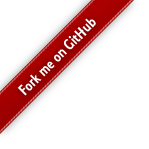OpenMDAO V3.4.0 has been released. Check out the full list of changes in the release notes. One change nice new feature is “noisy warnings” if AnalysisError is raised inside an optimization loop. Many optimizers can catch these errors and recover by backtracking on the line search, but previously this all happened silently. Now you’ll see some feedback on what went wrong in standard output. You can use that information to find the problem and potentially alleviate it for future runs.
I also want to highlight the new experimental feature that lets you size inputs based on their connection. The docs are a little bare at the moment, but we’re working on updating them. The gist of this though is that you can now have variables in components that are sized by the thing they are connected to!
As you can imagine, this is a pretty powerful new feature but it also has a lot of potential to cause confusion. So we’re marking it as experimental and we’re going to see how the user community likes it! We welcome all feedback here.
The credit for this feature goes to Josh Anibal from the University of Michigan MDO Lab. He submitted POEM 22 to propose the idea. Then he (unexpectedly) provided us with a prototype implementation in OpenMDAO. Josh’s prototype was absolutely critical in making this feature happen. The dev team didn’t see the same vision that he did, and we couldn’t get past some implementation challenges that he saw through clearly. We were about to reject the POEM, till we saw his solution.
One of the fundamental goals of the OpenMDAO project is to help spread innovations from MDO researchers to the user community more quickly. For me personally, Josh’s contributions are a major milestone towards achieving that goal. He’s definitely not the first person to make code contributions to OpenMDAO, but he’s the first to provide a fundamental change to the setup stack which allows users to build models differently.
Anyone who uses this feature has Josh to thank, and I look forward future contributions by him and others. One day, I hope we’ll have a huge list of people to thank!

